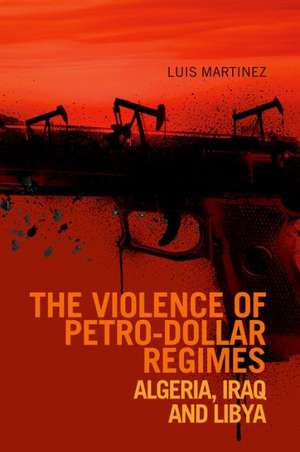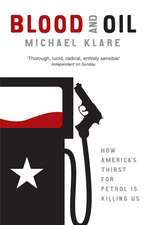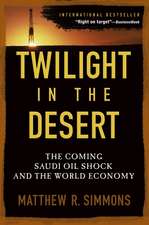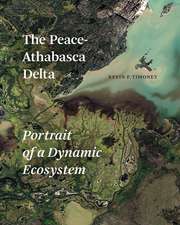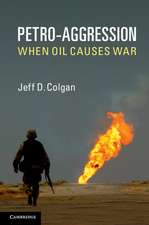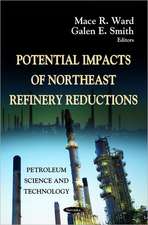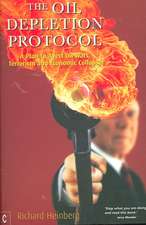Violence of Petro-Dollar Regimes: Comparative Politics and International Studies
Autor Luis Martinezen Limba Engleză Hardback – 29 oct 2012
| Toate formatele și edițiile | Preț | Express |
|---|---|---|
| Hardback (2) | 264.22 lei 3-5 săpt. | |
| HURST C & CO PUBLISHERS LTD – 30 sep 2012 | 264.22 lei 3-5 săpt. | |
| Oxford University Press – 29 oct 2012 | 397.59 lei 3-5 săpt. |
Preț: 397.59 lei
Nou
Puncte Express: 596
Preț estimativ în valută:
76.08€ • 79.70$ • 63.05£
76.08€ • 79.70$ • 63.05£
Carte disponibilă
Livrare economică 18 martie-01 aprilie
Preluare comenzi: 021 569.72.76
Specificații
ISBN-13: 9780199327676
ISBN-10: 019932767X
Pagini: 208
Dimensiuni: 142 x 218 x 20 mm
Greutate: 0.41 kg
Editura: Oxford University Press
Seria Comparative Politics and International Studies
ISBN-10: 019932767X
Pagini: 208
Dimensiuni: 142 x 218 x 20 mm
Greutate: 0.41 kg
Editura: Oxford University Press
Seria Comparative Politics and International Studies
Recenzii
'A compact, readable analysis, full of insight, of three Arab states seldom examined as a whole. Highly accessible, his book is of value to specialists, graduate students and undergraduates alike. The CERI Comparative Politics and International Studies Series, which supports translations of noteworthy social science works emanating from French researchers at Sciences Po, is also to be congratulated for bringing this book to an English-speaking audience.'--International Affairs 'A cogent, intelligent analysis of the perils and pitfalls of hydrocarbon wealth in these troubled states, adding much fuel to the "oil curse" debate and examining the structures that are seemingly its result.' - Christopher Davidson, author of After the Sheikhs: the Coming Collapse of the Gulf Monarchies 'Martinez has produced a compact, readable analysis, full of insight, of three Arab states seldom examined as a whole. Highly accessible, his book is of value to specialists, graduate students and undergraduates alike. The CERI Comparative Politics and International Studies Series is to be congratulated for bringing this book to an English-speaking audience.' - Ronald Bruce St John, International Affairs 'Luis Martinez has produced yet another fascinating and thought provoking book on political dilemmas in the Middle East. His analysis of how oil-rich authoritarian regimes can survive socio-economic and political crisis by turning the national rent into a personal asset sheds some new light on the future of authoritarianism in the region. That the key to regime longevity in Algeria, Libya and Iraq should be selective economic mismanagement is an argument that Martinez makes with great authority. This work undoubtedly provides anyone interested in political change in the Middle East with a brilliant new perspective on the challenges for democratic reform in the region.' - Frederic Volpi, Director, Institute of Middle East and Central Asia Studies, University of St Andrews, and author of Political Islam Observed 'Amid the uncertainty and upheaval unleashed by the events that have come to be described as the Arab Spring, it is important not to lose sight of the structures underlying the economic, political and social failures that have led to these events and continue to threaten the sustainability of many states in the MENA region. Martinez's book provides a refreshing analysis of the debilitating role that hydrocarbon rent has played in three major MENA oil and gas producing countries that have in the past twenty years gone through different forms and phases of instability. By grouping Algeria, Libya and Iraq together, his study draws useful contrasts for understanding the nuances of political violence, authoritarianism and failed state building - all key features of the transition currently underway in the region.' - Dr Hakim Darbouche, Oxford Institute for Energy Studies.
'A cogent, intelligent analysis of the perils and pitfalls of hydrocarbon wealth in these troubled states, adding much fuel to the "oil curse" debate and examining the structures that are seemingly its result.' - Christopher Davidson, editor of Power and Politics in the Persian Gulf Monarchies 'Luis Martinez has produced yet another fascinating and thought provoking book on political dilemmas in the Middle East. His analysis of how oil-rich authoritarian regimes can survive socio-economic and political crisis by turning the national rent into a personal asset sheds some new light on the future of authoritarianism in the region. That the key to regime longevity in Algeria, Libya and Iraq should be selective economic mismanagement is an argument that Martinez makes with great authority. This work undoubtedly provides anyone interested in political change in the Middle East with a brilliant new perspective on the challenges for democratic reform in the region.' - Frederic Volpi, Director, Institute of Middle East and Central Asia Studies, University of St Andrews, and author of Political Islam Observed 'Amid the uncertainty and upheaval unleashed by the events that have come to be described as the Arab Spring, it is important not to lose sight of the structures underlying the economic, political and social failures that have led to these events and continue to threaten the sustainability of many states in the MENA region. Martinez's book provides a refreshing analysis of the debilitating role that hydrocarbon rent has played in three major MENA oil and gas producing countries that have in the past twenty years gone through different forms and phases of instability. By grouping Algeria, Libya and Iraq together, his study draws useful contrasts for understanding the nuances of political violence, authoritarianism and failed state building - all key features of the transition currently underway in the region.' - Dr Hakim Darbouche, Oxford Institute for Energy Studies.
'A cogent, intelligent analysis of the perils and pitfalls of hydrocarbon wealth in these troubled states, adding much fuel to the "oil curse" debate and examining the structures that are seemingly its result.' - Christopher Davidson, editor of Power and Politics in the Persian Gulf Monarchies 'Luis Martinez has produced yet another fascinating and thought provoking book on political dilemmas in the Middle East. His analysis of how oil-rich authoritarian regimes can survive socio-economic and political crisis by turning the national rent into a personal asset sheds some new light on the future of authoritarianism in the region. That the key to regime longevity in Algeria, Libya and Iraq should be selective economic mismanagement is an argument that Martinez makes with great authority. This work undoubtedly provides anyone interested in political change in the Middle East with a brilliant new perspective on the challenges for democratic reform in the region.' - Frederic Volpi, Director, Institute of Middle East and Central Asia Studies, University of St Andrews, and author of Political Islam Observed 'Amid the uncertainty and upheaval unleashed by the events that have come to be described as the Arab Spring, it is important not to lose sight of the structures underlying the economic, political and social failures that have led to these events and continue to threaten the sustainability of many states in the MENA region. Martinez's book provides a refreshing analysis of the debilitating role that hydrocarbon rent has played in three major MENA oil and gas producing countries that have in the past twenty years gone through different forms and phases of instability. By grouping Algeria, Libya and Iraq together, his study draws useful contrasts for understanding the nuances of political violence, authoritarianism and failed state building - all key features of the transition currently underway in the region.' - Dr Hakim Darbouche, Oxford Institute for Energy Studies.
